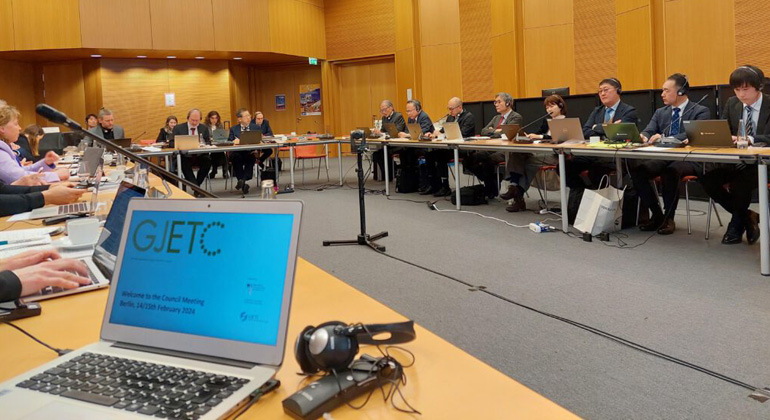Japan and Germany on their way to the COP 28 energy goals?
At the last Climate Change Conference of the United Nations in Dubai, it was decided that the countries of the world try to triple the output of renewable energies worldwide by 2030, double energy efficiency and transitioning away from fossil fuels in the long term.
Over the past two days, experts from the German-Japanese Energy Transition Cooperation Council (GJETC) met in Berlin to discuss the ambitious goals of these two countries to expand the use of renewables and to improve the protection of natural resources through more efficient technologies. Japan and Germany are making significant efforts to preserve natural resources but must also keep an eye on the requirements of energy security, economic reliability and social sustainability.
The verdict on the results of the 2023 United Nations Climate Change Conference (COP 28) is ambivalent. For some, the decisions taken are a positive sign for the proposed end of the fossil fuel era. For others, they do not go far enough regarding the continuing rise in global CO2 emissions and average temperatures, which make it increasingly likely that the 1.5 °C threshold target established in the Paris Agreement will not be met. Germany and Japan want to be forerunners for energy transition and urgently needed resources savings by implementing ambitious projects that significantly increase the share of renewable energies and energy efficiency as contribution to the COP 28 goals. The guiding principle in both countries is that this pioneering role not only serves climate protection, but also promotes a green, competitive economy in a more sustainable world.
Japan wants to become carbon neutral by 2050. According to its Prime Minister, the country needs to invest more than 150 trillion yen, approximately one trillion US dollars, over the next 10 years to achieve this. “With the GX Promotion Act, many initiatives are being launched, to simultaneously realize carbon neutrality commitments, as well as to strengthen industrial competitiveness and economic growth,” says Prof. Tatsuya Terazawa, Japanese Co-Chair of the GJETC, outlining the plan. “Even as we strive for carbon neutrality, we must also take multifaceted and comprehensive measures that not only ensure a stable energy supply, but also pay attention to strengthening industry and improving people’s quality of life.”
The German government’s theme for its appearance in Dubai was “Ambitious. Just. Together.” and the country acted as intermediary at the event. “We need to do our homework on energy efficiency and the ongoing restructuring of our energy mix. But we also want to help countries that are already affected from global warming and will be even more challenged in the future,” said Dr Stefan Thomas, Co-Chair of the GJETC on the German side, emphasizing an important aspect of global action. “Our Council meeting provided an initial opportunity for the experts to discuss what contributions both countries can make at home, but also through Just Energy Transition Partnerships as one example with2developing and newly industrialized countries to achieve the COP 28 goals. This topic will continue to occupy us in the coming months.”
- The GJETC studies can be viewed and downloaded at the following link: http://www.gjetc.org/publications/
Source
German-Japanese Energy Transition Cooperation Council (GJETC)








